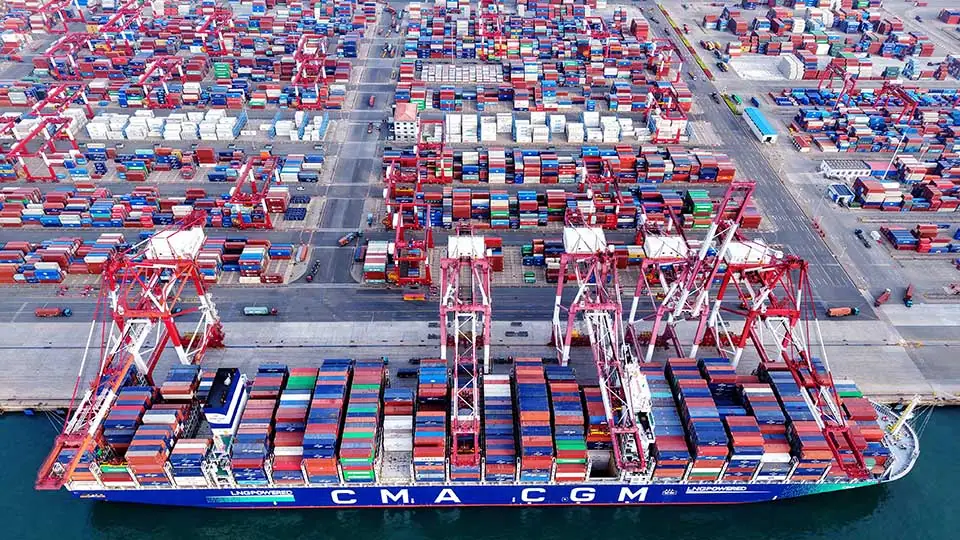China’s President Xi Jinping (centre L) speaks at the opening ceremony of the Forum on China-Africa Cooperation (FOCAC) at the Great Hall of the People in Beijing on September 5, 2024. The China Egypt industrial complex is a step towards Africa’s industrialization building on deliberations of the last FOCAC. GREG BAKER / AFP
China’s latest entry into Egypt, where it will establish a $658 million industrial complex focused on producing phosphoric acid using locally extracted phosphate ore, enhances the African nation’s manufacturing profile.
The China-Egypt industrial complex move follows promises China made during the last FOCAC, which will enable countries to shift from exporting raw materials to launching an integrated industrial value chain. While Egypt is not a standalone case in the Global South investment portfolio by Chinese entities, these actions will help Africa, which loses between 5% to 15% of its GDP per capita growth every year to the impacts of climate change, to scale the industrialization ladder.
Suppose China and other African countries partner for local manufacturing. In that case, each African nation will be able to manufacture products based on its unique natural resources endowment, essentially powering intra-African trade and making Africa a net exporter. This is especially important now that China has extended zero tariffs to 53 African countries, making the China-Egypt industrial complex a test case of what industrializing Africa could look like.
Africa’s Golden Opportunity to Develop Home-Grown Green Industries
Since African countries currently do not manufacture on the scale of industrialized nations and have little more than raw materials to export, the continent must become a net exporter to achieve zero tariffs, thereby becoming a genuine trade and economic benefit to both Africa and China.
As Ma Jun, a renowned economist and Founder and President of the Institute for Finance and Sustainability, points out, developing regions like Africa can benefit from this movement, especially now that aid is shrinking. This is Africa’s golden opportunity to develop home-grown green industries.
One of the drawbacks to Africa’s economic growth is the energy gap. China has made notable investments in addressing Africa’s renewable energy needs, as seen in countries such as Mali, Zimbabwe, Burkina Faso, and Namibia. However, Africa’s dire debt situation calls for a more effective model with China: an equity partnership to establish renewable technology manufacturing and assembly plants in African countries. Why? Africa imports solar panels, wind turbines and batteries at a premium, further deepening Africa’s debt.
Competitive Edge for China and Africa
While China manufactures over 80% of the world’s solar modules and slightly more than half of the world’s wind energy modules due to its advanced tech, expertise, and experience, Africa has- on the other hand- materials critical to the manufacturing of renewable energy technology components, a youthful population that would become a productive workforce, a growing appetite for renewable energy, and a large market in millions. The partnership would be ideal, especially for enabling African countries to integrate utility-scale and mini-grid technology, thereby greening their grids and closing the last mile, often in rural areas. The model would create a competitive edge for China and Africa, lending BRICS a partnership and investment model.
While FOCAC provides a strong political platform for the China-Africa partnership, the partnership now requires an implementation platform to realize FOCAC’s full potential. The Africa Green Industrialization Initiative (AGII) is such a platform; it is Africa-native, continent-wide, non-partisan, and enjoys strong political will across Africa.
Ma rightly speaks to how green free-trade arrangements can help align trade policy with climate aspirations, especially for developing regions. China, for instance, has demonstrated how green trade can drive economic growth and development. It is now the leading clean tech manufacturer in the world, having grown its GDP and established itself as a manufacturing giant. Indeed, the economic benefits of a green free trade cannot be understated, and African leaders must, therefore, seize this moment to ensure that their renewable energy potential and resources foster local industry, fairness, and green jobs.
A China-Africa Relationship Grounded on Tangible Deliverables
Both African leaders and China must demonstrate a strong political will to make this happen, ensuring that the China-Africa relationship is grounded in tangible deliverables rather than mere talk. This could mean the FOCAC Secretariat working with the AGII Secretariat on a framework for setting up joint investments to make a reality China’s and Africa’s climate, trade, and industrialization interests.
As Africa pursues this, avoiding past pitfalls is essential. Cooperative, incentive-driven approaches, such as green free-trade zones, offer a more sustainable path to sustainable development and decarbonization, especially for countries least responsible for the climate crisis but bearing the greatest burden.
But Africa, in striking green trade deals, must be careful not to be entangled in past extractive colonial systems that have consistently failed it. It must be careful not to continue being regarded as a supplier of cheap raw minerals and a premium market for exported finished products. These deals must also look at strengthening domestic and regional markets.


